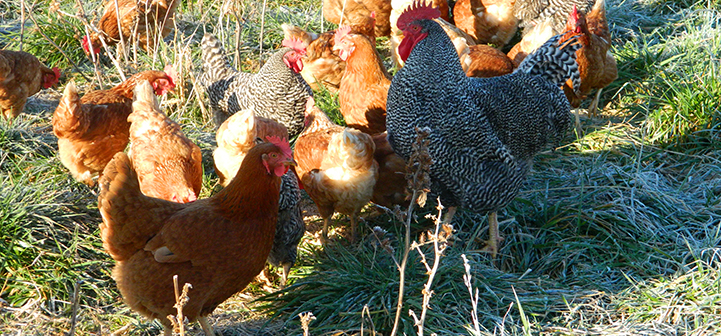The new cases of virulent Newcastle Disease (vND) continue to be found in southern California. Since May 18, when the first case was identified, USDA has confirmed 388 cases of vND in California. Of these, 116 were found in San Bernardino County, 229 in Riverside County, 42 in Los Angeles County, and 1 in Ventura County. USDA has also confirmed 1 case in Utah County, Utah.
The last confirmed cases were on February 27, 2019.
So far most of the cases have been with backyard exhibition chickens. Affected flocks also include two backyard non-commercial laying chickens, three commercial table-egg layer flock, two backyard hobby turkeys, a backyard exhibition pigeons, a backyard exhibition poultry, a live bird market, six feed stores selling adult birds, and a backyard exhibition mixed bird species flock.
Virulent Newcastle Disease is a contagious and fatal viral disease. It affects the respiratory, nervous and digestive systems of birds and poultry. The disease is so virulent that many birds and poultry die without showing any clinical signs.
It is important to note that Newcastle Disease is NOT a food safety concern. No one has ever gotten Newcastle Disease from eating poultry products. In very rare instances, people working directly with sick birds can become infected with mild symptoms. The most common is conjunctivitis. These are easily prevented with personal protective equipment.
Clinical signs in chickens include:
- Sudden death and increased death loss in the flock
- Sneezing, gasping for air, nasal discharge, coughing
- Greenish, watery diarrhea
- Decreased activity, tremors, drooping wings, twisting of head and neck, circling, complete stiffness
- Swelling around the eyes and neck
It is important for small and backyard flocks to follow good biosecurity practices to protect your birds from Newcastle and other infectious diseases. For more information on biosecurity programs, see the webinar at https://learn.extension.org/events/1995#.VNtcXS7GFMI

